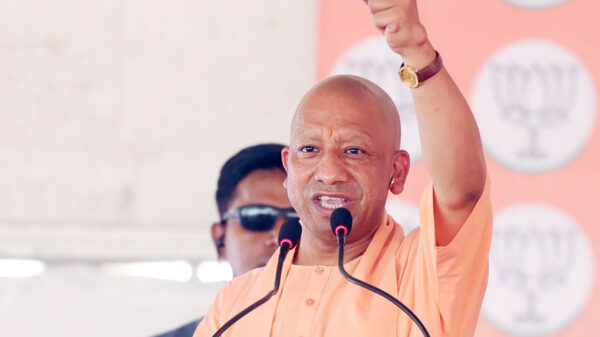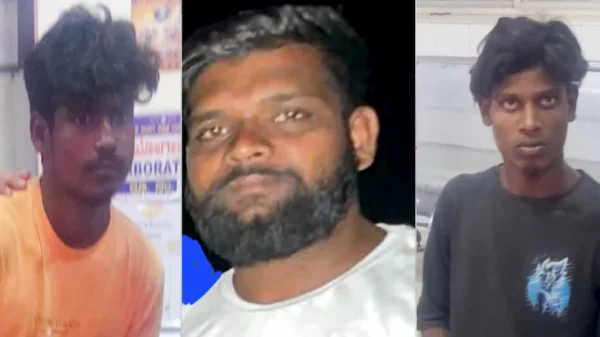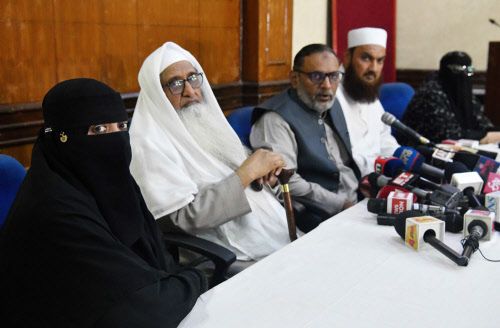The All India Muslim Personal Law Board (AIMPLB) was founded in 1973 with a lofty ambition: to safeguard the religious and civil rights of Indian Muslims. Over time, it became known as the self-declared apex body representing Muslim voices on personal law. But in the face of the Waqf Amendment Act 2024—a direct assault on Islamic institutions, community property, and religious freedom—the Board’s response has raised urgent questions. Has the AIMPLB become too outdated, too bureaucratic, too comfortable to matter? Or does it have one last opportunity to rise to the occasion?
The recent press note issued on April 5, 2025, shows the Board scrambling to project resolve. It declares a “nationwide movement” and outlines symbolic protest actions—black armbands, peaceful demonstrations, and legal challenges. It speaks of “coordination with all religious, community-based and social organizations.” But for a body claiming national leadership, this is too little, too late.
This campaign comes after the bill passed. Betrayal by political allies like the TDP and JD(U) went unanswered or unnoticed. As disillusionment spread across Muslim civil society, the AIMPLB’s leadership responded with press conferences and resolutions, appears to call for resistance following the sporadic protests rather than leading.
The legal route is being promised, but so was justice in the Babri Masjid case—and that took 70 years to deliver a politically loaded judgment. A case without a stay order means little. In fact, it allows the law to be implemented and waqf assets to be targeted while the matter lingers in court for years even decades.
Even symbolic protests were sporadic. Reports from the ground show low turnout, poor communication, and lack of mobilization beyond a few state capitals. This was not a movement. It was damage control.
Let’s ask plainly: why did this happen?
First, AIMPLB is not accountable to the people. It is a self-selecting elite group, mostly elderly men holding titles across multiple institutions. They appear more concerned with preserving status than confronting the urgent crises faced by Indian Muslims. Most of them already lead large religious organizations—Darul Ulooms, Jamiats, Jamaats—with vast resources. Yet the AIMPLB has no proper infrastructure, communications team, or digital presence. AIMPLB must get into hyper-organization mode for beyond Waqf other matters of similar proportions are in the offing, Universal Civil Code and the Places of Worship (Special Provisions) Act, 1991.
AIMPLB would need all the help it can get. It should extend open invitation to anyone who is willing help in any capacity irrespective which jamaat they belong to or what age or gender they are. Absence of such a call rests the entire responsibility on AIMPLB starting with its leadership from top to bottom. This the time for the good people in AIMPLB to speak up what they say privately else they share the responsibility of the outcome, hopefully a positive one.
Second, the Board is being used as a shield, not a sword. Major Muslim organizations distance themselves from risk while using the AIMPLB’s name to appear active. This protects their own funding, affiliations, and political relationships. Meanwhile, the community gets vague statements and delayed protests.
Third, political betrayal has gone unpunished. The TDP and JD(U) claimed to support waqf institutions—then voted for the amendments. What has the Board done to hold their Muslim members accountable? Are resignations being demanded? Are public boycotts being planned? Or are we seeing the normalization of betrayal once again?
The AIMPLB says it is coordinating with “all justice-seeking forces in the country.” But where was this coordination when the Bill was being debated? Where was the pre-emptive strategy? The truth is, the Board followed rather than led. It acted only after anger spilled onto social media and civil society began asking hard questions.
This law changes everything. It allows state authorities to override Waqf Boards, sell or reclassify properties, and intrude on religious spaces. Mosques, graveyards, dargahs, and madrasas—everything is vulnerable. The community needed a firm, urgent, united response. Instead, it got tokenism.
And yet, despite this, all is not lost.
The AIMPLB can still salvage its role—if it evolves. It must urgently open up to the average Muslim, rather than keeping it limited to Jamaats, madrasas, or some other little-known institutions. It must build a public-facing structure, invest in organizing capacity, and work transparently with civil society groups. It must stop relying on press releases and start building resistance. It must use its credibility not to shield older organizations, but to amplify younger ones.
More importantly, it must hold politicians accountable. If Muslims are being used as vote banks and then betrayed, the community must withdraw consent. No leader should be allowed to retain power after endorsing laws that harm the community. Not one.
Leadership is not about issuing statements—it’s about risk, responsibility, and results. This generation of Muslims—raised in the shadow of the Babri judgment, Delhi pogroms, and CAA protests—deserves better. If the AIMPLB cannot transform, it should step aside with dignity and allow new leadership to emerge.
The time for symbolic gestures is over. What we need now is real reform—and real resistance.
The views expressed in this article are author’s own and do not necessarily reflect the policy of the platform.






























































